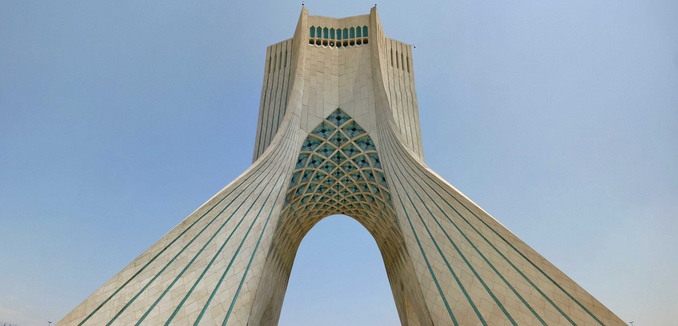The media narrative that “moderates” or “pragmatists” won landslide victories in last week’s Iranian elections “could not be further from the truth,” Iranian dissident Saeed Ghasseminejad wrote in the National Interest on Friday.
Ghasseminejad, who is currently an associate fellow at the Foundation for Defense of Democracies, explained that the election for the 88-seat Assembly of Experts, which selects the next Supreme Leader if Ayatollah Ali Khamenei dies, was more important than that of the Majles, Iran’s parliament. This means that “the coming Assembly may well choose his successor and shape the Islamic Republic’s future over the next few decades.” Furthermore, all legislation passed by the Majles has to be approved by the Guardian Council, which ensures that all laws conform to Iran’s revolutionary principles. (The Guardian Council also vetted the candidates for both elections.)
In January, the Guardian Council disqualified around 80 percent of the candidates for the Assembly of Experts and 50 percent of Majles candidates, the majority of whom “were self-described reformists or moderates.” This meant that on average there were fewer than two candidates running per seat on the Assembly of Experts.
Believing that moderates won control of the Assembly would mean that “the disqualified reformists somehow rose from the dead and dominated the elections,” Ghasseminejad wrote. “The results, however, show that in the Assembly of Experts, the radicals won 75 percent of seats.” The remaining seats were won by those considered to be more pragmatic and in alliance with current President Hassan Rouhani and former president Ali Akbar Hashemi Rafsanjani.
The Majles election still isn’t settled, as around one-fifth of the seats will require a runoff. Other uncertainties include whether the Guardian Council will overturn some results and who elected independents will ally with once the Majles reconvenes.
Another complicating factor is the fact that a number of those running as “moderates” were nothing of the kind. Ghasseminejad explained:
After so many of their candidates were disqualified, the pragmatist camp chose to round out its list with radicals, in order to defeat a handful of ultra-hard-liners whom they view as their greatest threats. Their strategy failed in many places, but partially worked in Tehran, where they defeated Mohammad Yazdi, the current Assembly speaker and an archenemy of Rafsanjani.
When they struck that deal, the reformers and pragmatists knew they were dealing with hard-liners. Among the cross-listed hard-liners was Mohammad Ali Movahedi-Kermani, the supreme leader’s former representative to the Islamic Revolutionary Guard Corps, who has said explicitly that he is not a reformist, as well as Ghorbanali Dorri Najafabadi, a former intelligence minister responsible for a string of assassinations of intellectuals and dissidents in the 1990s. They also include Mohammad Reyshahri, another former intelligence minister who oversaw the murder of thousands of political prisoners in the 1980s, and Yousef Tabatabaei-Nejad, who has blasted opponents of the hijab as kuffar and encouraged violence against even women who show too much hair under their headscarves. All have one thing in common: they are known radicals, have no record of supporting “moderation” and reject the reformist label.
Others who ran as reformers or moderates held hardline views, such as demanding harsh punishments for jailed democracy activists and describing Israelis as “not human.”
Ghasseminejad concluded:
Friday’s election was not a landslide victory for the pragmatists. They lost the Assembly of Experts with a wide margin, and just barely improved their position in the Majles. Labeling radicals as “moderates” or “reformists” does not make them so. As Wendy Sherman, the lead negotiator of last summer’s nuclear deal, noted this month, Iranians face a choice not between moderates and hard-liners, but hard-liners and “hard-hard-liners.” After this election, as before, the reins of power in the Islamic Republic will remain theirs.
The New York Times was one of many outlets who initially portrayed the election as a victory for moderates. “In the parliamentary elections, Mr. Rouhani and the moderates not only swept all seats in the capital but also appeared to run strongly in other urban areas,” the Times reported on Monday, adding, “the moderates also did well in the other election, for the 88-member Assembly of Experts.” Two days later, the Times followed up, acknowledging that “while the government and its supporters clearly won a sweeping victory in the capital, the picture in the rest of the country is much more diffuse and may remain that way for some time, if not permanently.”
[Photo: Christiaan Triebert / Flickr ]




